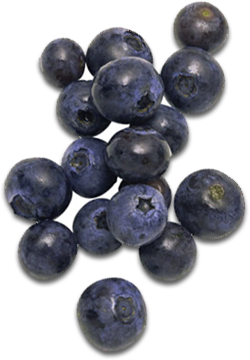no items to display
Veganuary: The 7-Day Vegan Challenge!
During Veganuary, the U.K. spreads awareness about how eating more plant-based impacts our health, our lives and supports the planet. It lasts the whole month of January. Our blog focuses on a 7-Day Challenge to get you started in this month, so you start off in a balanced way.
The goal of this 7-Day challenge is to explore how a plant-based, vegan diet* could work for you.
Remember to check in with a health professional before making drastic changes to your diet, especially if you are on medication or have a health condition.
This is an exploration, so have fun with it!
- Focus on learning about how to cook and prepare tasty plant-based meals.
- If you eat 50% more vegan during the week, that is already a FANTASTIC! (Don’t worry if you accidentally eat something non-vegan.)
- Use the 7 days to see if a plant-based diet supports your body well by checking in to see how you feel in your body? (Energy, digestion and sleep.)
- Be curious! You may discover a new way of eating that includes more fruit and vegetables into your diet. Win for everyone!
How to get started.
Step 1. Why do this?
Take a minute here to reflect on what that means for you and how you could potentially improve your diet by focusing on eating more whole fruits and vegetables for 7 days!
Step 2. Read through the 7-Day Challenge below!
See what ideas get you excited.
Step 3. Choose your 7 days
You can do this all at once or spread it out over the month. Whatever works best for you. I highly recommend recruiting a friend or work colleague, as it’s more fun than doing it alone.
Step 4. Go for it!
Keep track of what you eat in a food journal.
Important: Reflect after each meal:
- How do I feel in my body?
- What feels great?
- What challenges come up?
Step 5. Celebrate!
THE 7 DAYS OF PLANT-BASED EATING

Day 1: What is a plant-based diet and how is it different than a vegan diet?
Take the Plant-based Diet Awareness QUIZ. (Answers are at the bottom of the page)
How much do you already know about different diets?
1. What do these terms mean?
A. Plant-based
B. Vegan
C. Junk Food Vegan
D. Chickenitarian
E. Pescatarian
F. Omnivore
2. What are the benefits of eating plant-based?
For myself…
For the planet…
3. Can you name of 5 plant-based dishes?
4. Can you name 5 famous vegans or vegetarians?
(Take a look in the bottom of the blog to find the answers.)
Homework Day 1: Remember what fruit and vegetables you truly love!
- Make a list of your favourite fruits and vegetables.
- Buy 4-5 pieces of fruit and veg to have at home.
- Clean and chop up and put out for everyone to taste.
Did you learn something new today?
Reflect on your experience in your food journal.

Day 2: Explore a plant-based or vegan restaurant with a good friend ☺
When I started my healthy lifestyle, I wasn’t really a good cook, so it helped to go to restaurants and try new dishes with friends. I sometimes loved what I ate… and sometimes I was disappointed.
When I found a vegan dish that I loved, I searched for recipes on Pinterest and YouTube and tried to recreate them at home with a bit of success. Though sometimes it just didn’t taste the same!
Homework: Get to a vegan restaurant!
Find a friend who is open to new experiences (or perhaps already vegan?)
Try something new (have a back up plan if you are still hungry.)
See if you can recreate that meal at home.
Describe your experience.
- What thoughts or judgments came to mind before the meal, [Text Wrapping Break]during and after the meal?
- How is your energy and digestion after eating?

Day 3: It’s not about avoiding meat. It’s about eating more fruit, vegetables, nuts, seeds, legumes and grains.
Watch out for plant-based meals that only contain pasta, cereal, bread and gravy. Or you may create a diet that is not well balanced (After all beer and chips are vegan!)
The goal is to eat more fruits and vegetables along with whole grains, and legumes.
Look for inspiration or “eye candy” in Pinterest or Google. When I see gorgeous food in a variety of colours, I get super excited and want to taste it.
Texture is important! To stay motivated eating more fruits and veg, it’s best to find plant-based meals that provide a good chewing experience. Food is more than just about taste!
Homework: Google pictures of “healthy plant-based or vegan dishes”
- Print out your favourite pictures and hang them in the kitchen.
- Remind yourself that fruits and vegetables are gorgeous and inviting to eat.
- Try to recreate those dishes at home.
Describe your experience.
- What images excited you the most? Why?
- Don’t Like Google? Here are my favourite vegetarian menus.
- Vegan Sushi (avocado rolls, cucumber rolls, pickled pumpkin rolls)
- Crisp Fresh Greek Salad (substitute feta cheese with marinated tofu cubes, hummus or chick peas.)
- Butter Chickpea Curry and Crispy Bread
- Stuffed bell peppers with quinoa, tomato and beans.
- Black Bean Soup

Day 4: What about meat replacements?
It may feel really strange to remove meat from your diet. Especially if you grew up like me, where meat was the centre of every meal. We often picked the meat first and then added the side dishes around it.
Resist the urge to simply replace meat with “Tofurky” or Veggie Hot Dogs. While this checks the box as “plant-based,” it doesn’t teach you how to cook with whole foods.
Homework: Try Beans
1. Instead of replacing meat with fake meats made of corn or tofu, focus on trying out new forms of healthy proteins like beans.
2. Here are a few examples:
- Instead of meat bolognese, try lentil bolognese.
- Instead of a chicken burrito, try a sweet potato burrito with fresh chilies and guacamole.
- Instead of chilli con carne, try it with red peppers, sweet potato and kidney beans.
Describe your experience.
What did you try?

Day 5: Learn more about nutrition.
When you start to cut out major parts of your diet, like meat, it is important to:
- know where you stand with your own body and its nutritional needs
- know what foods are important to eat often
- consider supplementation
I ALWAYS recommend checking in with your doctor and doing a full panel blood work to see where you stand with your health. It is common for example to have a vitamin B12, calcium, zinc or iron deficiency when eating vegetarian or vegan.
If you are struggling with your nutrition, you may want to consider supplementation and get advice from a professional when supplementing your diet.
Homework: Take notice of what nutrition you take in.
- Do you balance your meals with appropriate macro nutrition: protein, carbohydrates and fats?
- Do you consider micronutrients like vitamins, minerals and trace elements in your diet?
Describe your experience.
Does thinking this way change your approach to which foods you would choose to put on your plate?

Day 6: Healthy Snacking - Plant-based!
One of the things I observed when eating more plant based, is that I was hungrier more often.
Since I wanted to add in nutritious snacks and not just dry snack crackers, I focused on adding in whole fresh fruit and veg.
Homework: Add in 1 – 2 healthy snacks
1. Consider balancing carb + fat + protein all together for a truly satisfying snack.
2. Try something from this list today.
- Carrots and hummus
- Apples and almond butter
- Marmite on whole grain toast
- Cream cheese with cucumbers
- Dates with walnuts and almond butter
- Banana and almond milk smoothie
- Celery and peanut butter
- Olives with a piece of organic cheese
Describe your experience.
- What did you try?
- Did it help your energy, mood or digestion?
Day 7: CONGRATULATIONS! Celebrate your plant-based exploration!
You’ve just creatively explored a plant-based lifestyle for seven days! A plant-based lifestyle not only supports your health and wellbeing, but also impacts your friends, family, animals and the planet.
Homework: Continue your plant-based journey
Now that you have started this journey, continue the exploration to support a healthy and balanced diet by adding in more fruits and vegetables.
Here are some easy ways to continue the plant-based diet journey.
Practice Meatless Mondays.
Keep your breakfast and lunches vegetarian, but eat meat only with dinner if it’s too difficult to remove 100% of the time.
Have fun with it! Hold plant-based pot luck parties with friends and coworkers!
Try new plant-based recipes on the weekends.
Try a new fruit or vegetable that you’ve never had before.
Reflect on the 7-Day Challenge.
- What did you feel?
- Did something change?
- Did you learn something new?
- Did you find a plant-based dish that you love?
QUIZ ANSWERS: Plant-based Diet Awareness
1. What do these terms mean?
A. Plant-based: A diet that contains no animal products, and is focused on eating whole foods including fruit, vegetables, legumes, nuts, and seeds.
B. Vegan: A diet that contains no animal products. No flesh, milk, yogurt, or honey. Simply avoids any animal products.
C. Junk Food Vegan: A diet where the person lives off of bread, cereals and sugary products instead of actual vegetables.
D. Vegetarian diet: A diet that allows certain animal products such as milk, cheese and honey.
E. Chickenitarian: A diet that allows chicken, but avoids beef, lamb, fish, etc.)
F. Pescatarian: A diet that allows fish, but avoids beef, lamb, chicken, etc.)
G. Omnivore: eats everything.
2. What are the benefits of eating plant-based?
For myself: when eating more plant-based and adding in more fruits and vegetables, dietary fibre increases, supporting digestion and normal health.
For the planet: when eating less meat, the environment is less damaged and less harm comes to animals.
3. Can you name of 5 plant-based dishes? (There are so many! Here are my favourite 5)
A. Vegetarian chili
B. Hummus/rocket wrap
C. Black bean tacos
D. Stuffed butternut squash
E. Cous cous salad with beans, peppers, rocket, tomatoes and a delicious dressing
5. Can you name 5 famous vegans or vegetarians?
A. Gandhi, vegan
B. Paul McCartney, vegan diet
C. Leo Tolstoy, vegetarian
D. Steve Jobs, vegeterian/vegan
E. Albert Einstein, vegetarian
Please note: A Vegan Diet is different than a Vegan LIFESTYLE.
People who call themselves vegan, often refer to their entire lifestyle. This means not only do they practice a vegan diet that does not contain any animal products, they also do not use/wear animal products such as leather and furs or exploit animals in any way.






